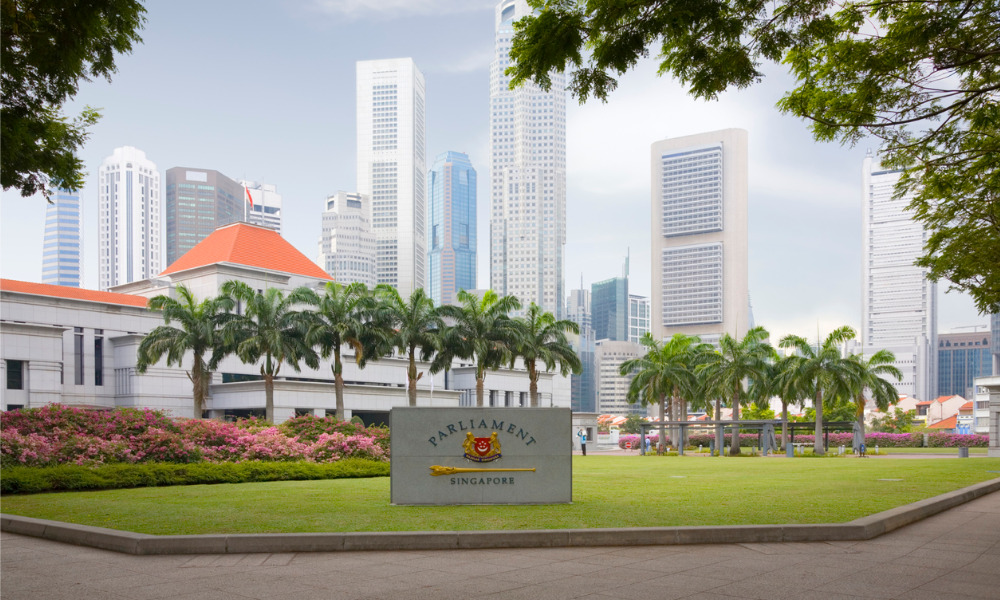
'We will have to learn to live with COVID-19 for the long term… We must all adjust the way we live, work and play'

Singapore’s Prime Minister Lee Hsien Loong expects COVID-19 to remain a problem “for a long time” and urged everyone to get used to new arrangements in the way we live, work and play.
In a televised address, Lee spoke about the ‘new normal’ amidst the COVID-19 health and economic crisis.
Labelling it the “most dangerous crisis humanity has faced in a very long time”, he called on everyone to do their part and remain resilient as the impact of COVID-19 will be felt beyond 2020.
While Singapore is taking a phased approach to reopening the economy, including workplaces, schools, and even essential travel, Lee reminded that COVID-19 will be a long-term issue that “we will have to learn to live with” until a vaccine becomes widely available – possibly in a year or longer.
In the short term, he said the number of cases will expectedly rise, as it has in other countries that have come out of lockdown. The authorities have stepped up testing and contract tracing efforts to catch new cases early and stamp out clusters.
However, he urged everyone to continue with the same habits: maintaining personal hygiene, wearing a mask when outside, safe distancing and avoiding crowded gatherings.
“If all goes well and the outbreak remains firmly under control, we will ease up further, and resume more activities as soon as possible,” he said.
“We also have to get used to new arrangements in our daily lives. We must all adjust the way we live, work and play, so that we can reduce the spread of the virus and keep ourselves safe.”
READ MORE: What will the 'new normal' look like?
The global recession
Besides acknowledging the long-term public health effects of COVID-19, Lee addressed the dire recession.
“Because of COVID-19, the global economy has virtually ground to a halt,” he said. “Governments have spent trillions of dollars to support businesses, economies and jobs. Yet, tens of millions of jobs have been lost. Families are experiencing hardship. We are in a totally unprecedented situation.”
Even as the authorities discuss the possibility of essential travel, such as business travel, the prime minister expects the ‘new normal’ to retain a lot of its current restrictions.
“Movement of people will be more restricted,” he said. “International travel will be much less frequent. Health checks and quarantines will become the norm. It will no longer be so easy to take quick weekend trips to Bangkok or Hong Kong on a budget flight.
“Industries that depend on travel, like aviation, hotels and tourism, will take a long time to get back on their feet, and may never recover fully.”
Besides the hospitality sector, he expects both domestic and the regional economy to be affected by travel restrictions, with businesses in manufacturing, biotech, financial services, logistics, retail and F&B especially hard-hit.
“Now, we have to prepare for a very different future,” he said. “Companies big and small will be hit hard. Some industries will be permanently changed. Many will have to reinvent themselves to survive.
“Workers too will feel the pain. Retrenchments and unemployment will go up. Some jobs will disappear and will not come back. Workers will have to learn new skills to stay employed. The next few years will be a disruptive and difficult time for all of us.”
‘Prepare for the uncertainties ahead’
Following his address, Lee said corresponding ministers will address the nation through the week and share their plans to guide leaders and individuals through the uncertain new normal, be it in terms of manpower or business management.
He added that Singapore’s leaders are working hard to retain and attract talent and investments to contribute to the nation’s recovery, so that workers and industries will “survive the crisis better and bounce back faster and stronger”.
In line with the recent ‘Fortitude’ budget announcement, he reaffirmed the government’s priority on jobs and shared concerns on vulnerable groups of workers:
He hopes the schemes covered in all four government rescue packages will help affected employees and businesses tide through tough times.
“For our plans to succeed, for our hopes and dreams to come true, we need one final ingredient: the unity and resilience of our people,” he said.
He reminded that crisis is a true test for everyone – some “buckle under pressure”, while others grow more determined against fearful odds, discover their real strength, and “emerge from crisis transfigured, renewed”.
“Now, at another hinge in our history, it is our turn to face the crisis of a generation,” he said. “The choices that we make now will define who we are as a people, and what values and ideals we pass on to future generations.
“Confronting adversity, do we yield to anger, fear and bitterness? Or will we be true to ourselves, stand firm, make tough choices, and continue to trust and depend on one another?”
How are you managing the new normal? Click here to share your insights and help other leaders navigate the uncertain landscape.